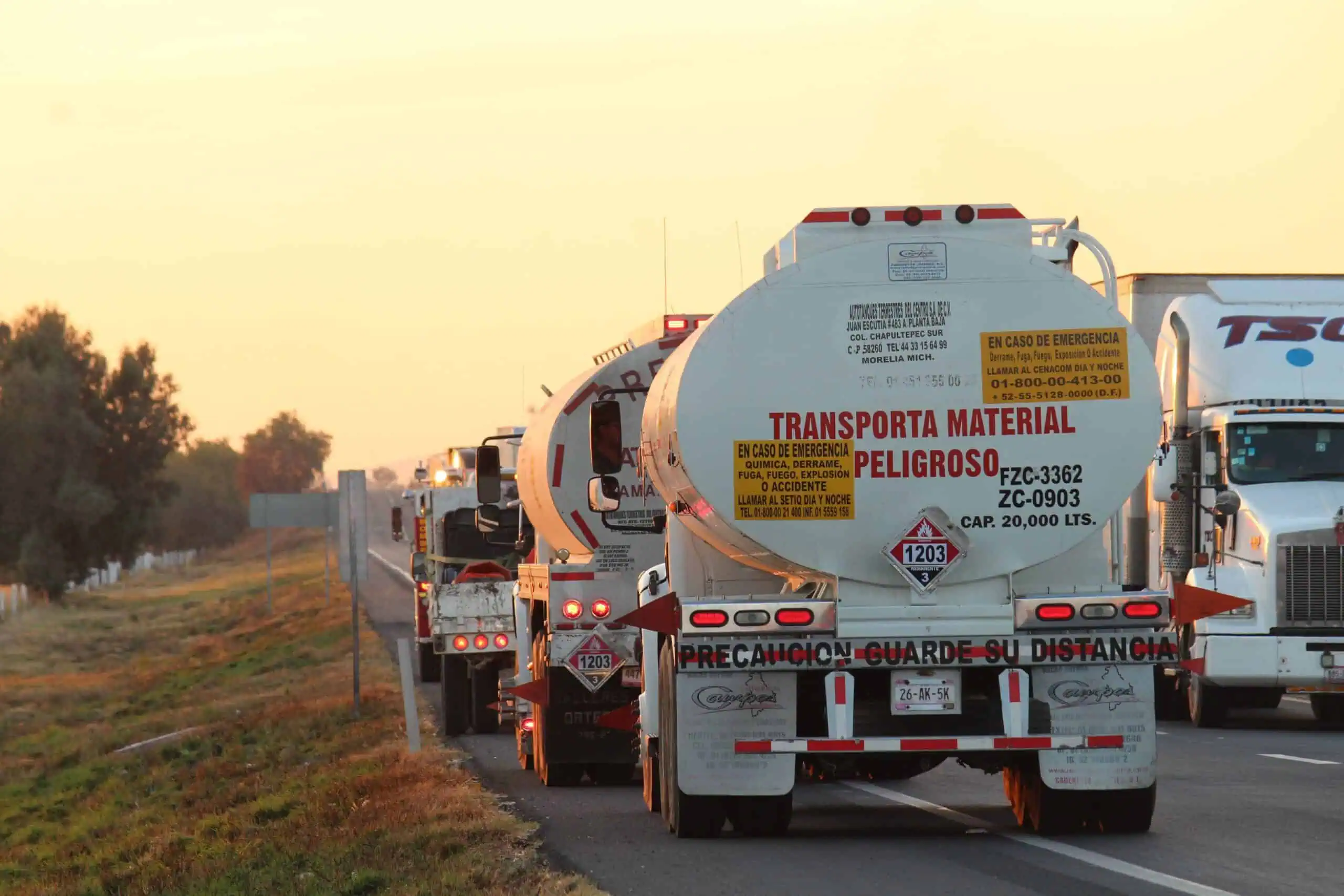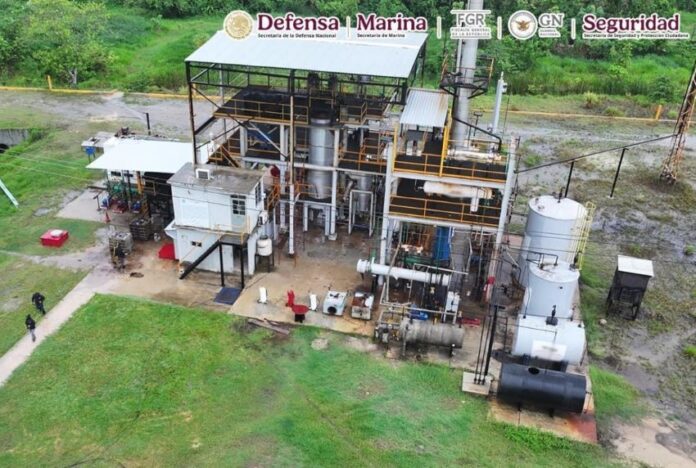Federal authorities located a clandestine oil refinery in Veracruz at which they seized more than half a million liters of crude, Security Minister Omar García Harfuch reported on Wednesday.
“As a result of field intelligence work and reconnaissance flights, a clandestine operation to produce artisanal or alternative diesel, light naphtha or solvents and treated oils or light fuel, was identified in Coatzacoalcos, Veracruz,” García Harfuch said on the X social media site.
Derivado de labores de inteligencia de campo y vuelos de reconocimiento, se identificó una operación clandestina, ubicada en Coatzacoalcos, Veracruz, para producir diésel artesanal o alternativo, nafta ligera o solventes y aceites tratados o combustóleo ligero, que operaba sin… pic.twitter.com/kUASRb7SoM
— Omar H Garcia Harfuch (@OHarfuch) June 18, 2025
He said that the facility was operating “without the appropriate permits and represented a risk to local ecosystems.”
García Harfuch said that federal authorities including the Army (Defensa), Navy (SEMAR), National Guard and state oil company Pemex executed a search warrant at the illegal refinery.
“More than 500,000 liters of crude as well as infrastructure for production destined for the illegal fuel market was recovered,” he wrote on X.
In a joint statement, the federal Security Ministry, the National Guard, the Federal Attorney General’s Office, Defensa and SEMAR said that the facility in Coatzacoalcos was used as “a small-scale refinery” and had “equipment to separate fuels” and “pipes for their transport.”
The authorities said that “seven large capacity mobile tanks” and “four vertical tanks” were found at the clandestine refinery.
They said that the facility formerly treated industrial waste, but was subsequently used for the “illegal processing of hydrocarbons.”
The authorities said that further investigations into the operation of the illegal refinery will take place. They said the facility was cordoned off and is under police guard.
No arrests were reported in connection with the detection and search of the illegal refinery.

Criminal cells of the Jalisco New Generation Cartel, the Gulf Cartel and other organized crime groups operate in the area where the facility is located, the Reforma newspaper reported. Cartels have been involved in fuel theft — colloquially known in Mexico as huachicoleo — for years. The crime — often committed by tapping fuel pipelines — costs Pemex hundreds of millions of dollars annually.
Coatzacoalcos is located on the Gulf of Mexico, where most of Mexico’s crude comes from. One of Pemex’s seven refineries in Mexico is located 25 kilometers inland in the city of Minatitlán.
1.2 million liters of stolen fuel seized in Nuevo León
García Harfuch also reported on Wednesday that authorities had seized 1.2 million liters of fuel in the northern state of Nuevo León.
“In following up on actions to prevent the theft of fuel in the country,” federal and state authorities “executed a search warrant in the municipality of Allende, Nuevo León, where they secured 1.2 million liters of hydrocarbons as well as tanker trucks and containers,” he wrote on X.
Federal authorities said in a statement that investigative work led to the detection of a property in Allende that was used to store fuel of “illicit origin.”
They said the property posed a risk to the local population as it wasn’t operating with “appropriate safety measures.”
The property was also cordoned off and place under police guard. No arrests were reported.
With reports from Reforma and El Financiero
